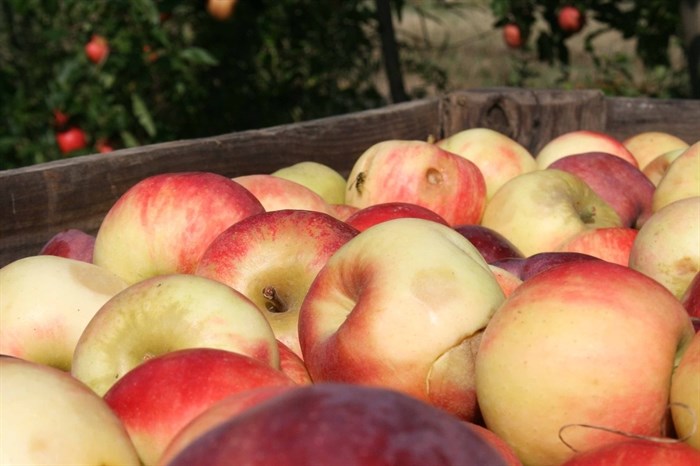Why cider is making a comeback in the Okanagan

KELOWNA - Cider is fast becoming a staple in the Okanagan — everyone knows you can find local ciders in almost any liquor store — but cider hasn’t always been as popular in the Okanagan as it is now.
Credit for starting the industry 20 years ago generally goes to three orchardists — Tom Kinvig, Bob Thompson and Ron Vollo — who were growing apples in Summerland. They noticed that tonnes of apples were left on the trees at the end of each season: Some blemished, others simply missed by the picking crew. Rather than letting these apples go to waste, the three friends decided to make cider.
However, their first few batches were not entirely successful. After doing some research, they discovered apples grown specifically for making cider in Europe, like Dabinett, Kingston Black and Michelin were not common in the Okanagan at the time, and the friends had never heard of them.
These European cider varieties have been around for centuries, as they were used in the original production of cider in Roman times, explains Taylor Sebastian, part-owner and orchard manager at Scenic Road Cider Co. in Kelowna. "Cider was actually used as a currency back in the medieval times by the Romans in Europe.” Cider was also present in the UK at the time, always on tap in bars and establishments.
“At one time it was as popular as beer,” Sebastian said.
When the French and the British colonized North America in the 16th century they planted apple trees to make cider. It was a popular drink, often because it was safer to drink than water.
Cider production continued to flourish in both the UK and North America for the next couple hundred years.
However, in North America the Industrial Revolution pulled farmers from their crops and into factories, reducing the production of cider. Plus, unpasteurized cider couldn’t travel well from farms to new urban centres.
Another factor in the decline was the growing popularity of beer, as grain was cheap and readily available.
The final blow came in 1920 with Prohibition.
“When Prohibition happened in the States, the United States government made (farmers) cut down all the trees,” Sebastian said. “When the prohibition was over, the quickest way to get intoxicated was to make beer or spirits."
Beer and spirits are quicker to produce than cider, which needs time to age and ferment.
"About twenty years ago, really small batch cider made from real apple juice, hand pressed or pressed apple juice started to get popular in Oregon, Washington State and New York State,” Sebastian said. “That’s sort of been the rebirth of a traditional cider in the new age of today."
The first cidery in the Okanagan was started by those three friends, Tom, Bob and Ron. Today it is still known as Summerland Heritage Cider Company.
Although cider may not have a long history in the Okanagan, apples most certainly do.
Taylor and Caroline Sebastian opened Scenic Road Cider Co. with partners Marina and Harv Johal in 2016, however their orchard’s story begins long before that.
The first apple orchards were planted in the Okanagan around 1860, and became commercial around 1890. The first Scenic Road orchard was planted in the early 1900s.
Their tasting room is the packing house which dates back to the 1930s. It's one of the original packing houses in the valley.
The temperate climate in the Okanagan has always been perfect for growing fruit. In fact, back in the early 1900s the Okanagan was commonly referred to as "The Land of Fruit and Sunshine."
So, if you don't come here for the cider, you can always stay for the weather.
Or the wine. But that's another story.
We welcome your comments and opinions on our stories but play nice. We won't censor or delete comments unless they contain off-topic statements or links, unnecessary vulgarity, false facts, spam or obviously fake profiles. If you have any concerns about what you see in comments, email the editor.


